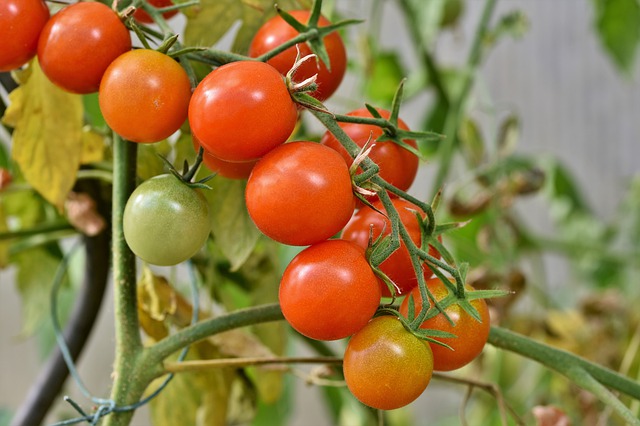Tomatoes are an important and popular crop, but the tasty ketchup, salsa and pasta sauce they yield comes at a price: overuse of chemical fertilizers. Now, researchers report in Journal of Agricultural and Food Chemistry they have recruited a fungus to bolster fertilizer efficiency, meaning tastier tomatoes can be grown with less fertilizer.
Tomato plants have a long growth period and need more nutrients — particularly nitrogen and phosphorus— than many other crops. Supplying these nutrients through a chemical fertilizer is inefficient, because the nutrients can leach away, evaporate or get trapped in insoluble compounds in the soil, among other problems. Some farmers react by overusing fertilizers to boost tomato yield, but this results in poor fruit quality, fertilizer waste, soil deterioration and environmental pollution. Another option is to apply microbes that free nitrogen and phosphorus from the soil for the crop to absorb, though this technique generally hasn’t performed well in farm fields. However, Jianguo Huang and colleagues previously succeeded in using a fungus to enhance nutrient uptake and growth in field-raised eggplants. In their latest study, they wanted to find out if the microbe could work with ketchup tomato crops.
The researchers used the HG2011 strain of Ceriporia lacerata, a white-rot fungus with applications in medicine, wastewater treatment, and sugar and biofuel production. Known to grow on trees and other plants and in soil, it deploys proteases, phosphatases and other enzymes to obtain nutrients from its environment. In the process, it converts elements and compounds into forms that plants can use. In the new study, the team showed the fungus promoted enzyme activity in the soil, and improved tomatoes’ nutrient uptake and yield in both fertilized and unfertilized soils. The results suggest that compost from this fungus has potential as a cheap supplement that could reduce the need for chemical fertilizer. The fungus — which doesn’t harm tomatoes — also enhanced nutrition and flavor by increasing the tomatoes’ sugar-acid ratio, as well as their soluble sugar and vitamin C content, according to the researchers.
Read the paper: Journal of Agricultural and Food Chemistry
Article source: American Chemical Society
Image credit: Capri23auto / Pixabay








